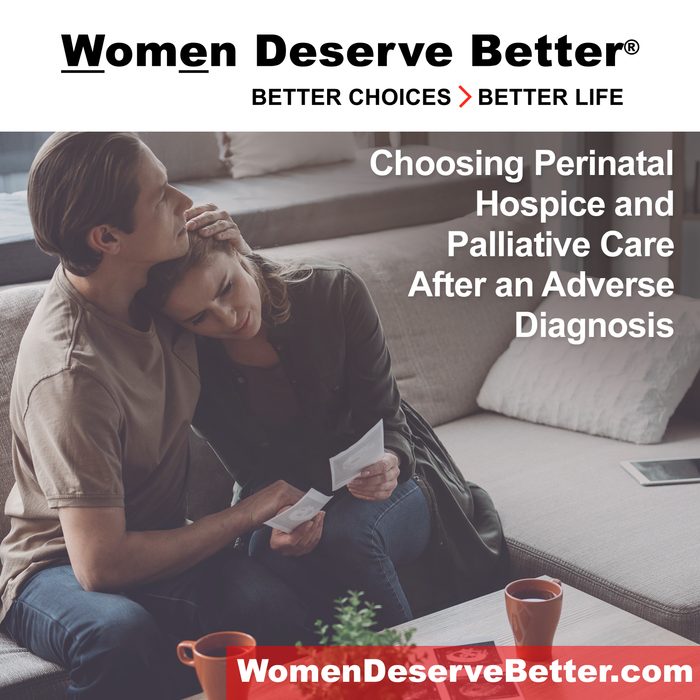
The news of an adverse prenatal diagnosis can leave many parents shocked and bereaved. It’s normal to feel lost and in need of guidance during what promises to be a very emotional journey. What might your birth plan look like now? Parents who find themselves in this situation understandably need support as they contemplate how to move forward.
It’s normal to feel overwhelmed by grief if you’ve just learned about a life-limiting condition. This can make it challenging to process your options. Finding reliable information can be hard, and implementing the best strategy for your situation often requires finding a balance of compassionate and evidence-based care.
You might have heard about what’s commonly referred to as “perinatal hospice” and “palliative care.” But you may have questions about what this is and if this is the right approach for you. For more details on what this program may involve, you may want to consult your caregiver, or you can review a list of perinatal programs that may be in your area.
What Is Perinatal Hospice?
This model of specialized care typically begins from the moment of the diagnosis and continues after the time of delivery. On top of providing parents with emotional support during this period, it allows parents to celebrate their child’s life for as long as possible. Palliative care may include treatments that will make the baby comfortable. Medical intervention may even be provided if the baby’s condition changes.
A comprehensive team of nurses, doctors, and social workers usually carry out this program. While all of this may seem frightening for parents, those who have pursued perinatal hospice have reported positive effects. Grief can be hard to overcome, and every parent’s experience with a life-limiting diagnosis is unique. For many, though, the chance to create memories and bond with their child helps them process their emotions.
What Does Perinatal Hospice Look Like for Parents?
After delivery, the baby will remain in the room with the parents. A further medical evaluation may be done to assess the child’s care needs. You’ll usually be given the opportunity to hold your child, bathe your baby, and take photographs. You can keep the time you spend meeting your baby between you and your spouse or partner, or sometimes, you can invite loved ones to be there with you. While you create memories, your baby is kept warm and has her basic nutritional needs met.
If your baby is able to breastfeed or take a bottle, then you may be able to try feeding him. Some parents may want to take their baby’s footprints or collect other keepsakes aside from photographs. For help with this, you may want to ask the hospital staff for assistance.
Is Perinatal Hospice Expensive?
Most hospitals will already have staff who are trained in various forms of bereavement care. There’s also perinatal hospice support organizations, such as Be Not Afraid, that help parents with birth planning and referrals. This is typically done at no cost.
Hospice care or any medical interventions deemed necessary will generally be covered by ordinary insurance or medical assistance that’s already available.
See also: “Preparing to Say Goodbye to a Baby”
By Samantha Kamman

